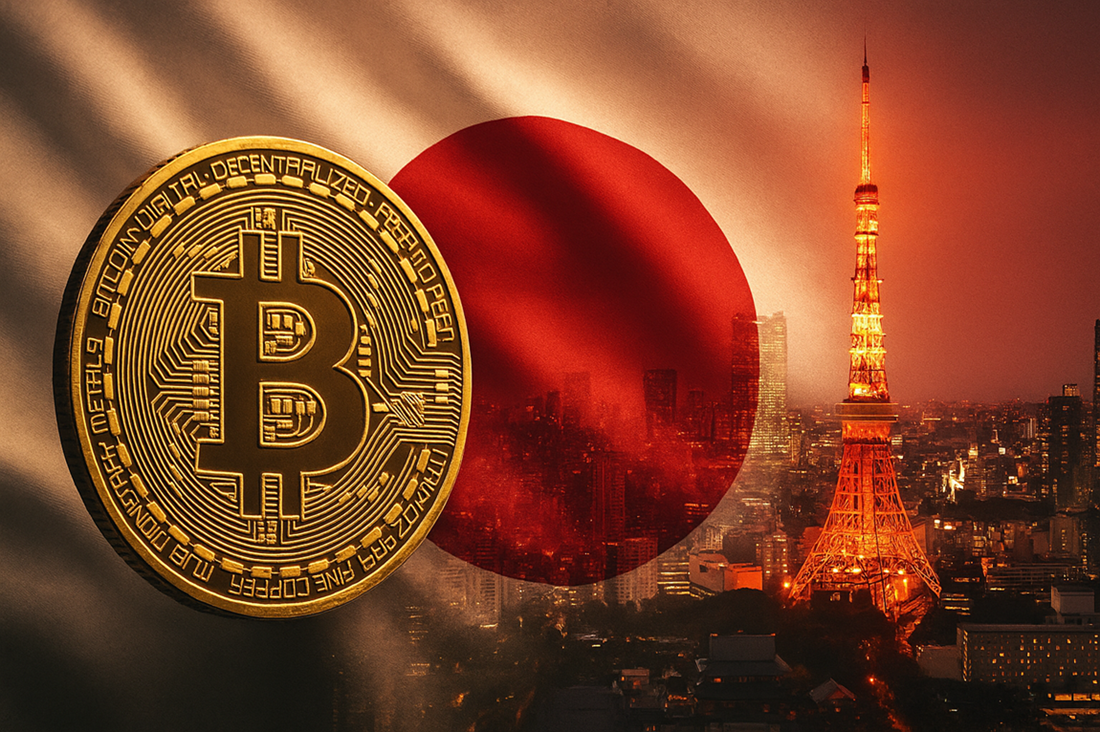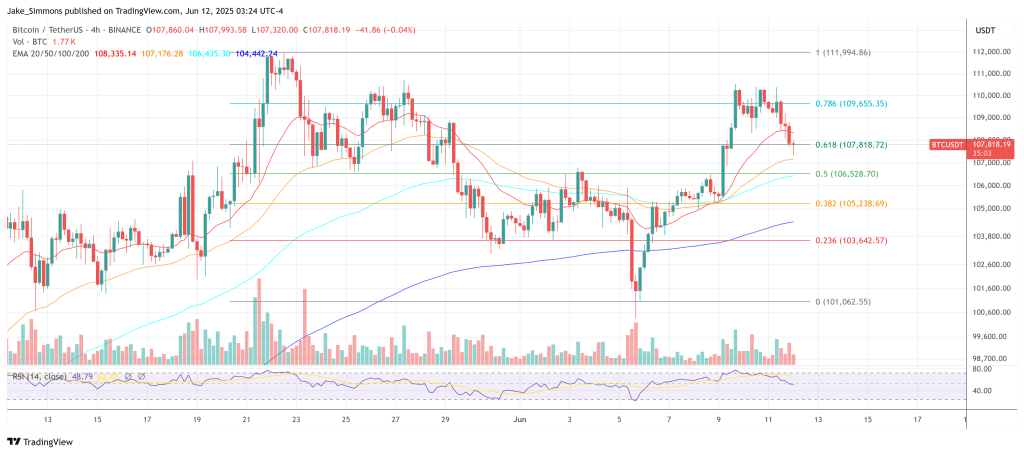Bitcoin’s Next Mega-Buyer? Watch Japan Closely: Bitwise Exec

In a conversation with journalist Laura Shin on the latest episode of Unchained, Bitwise Head of Alpha Strategies Jeff Park sketched a future in which Japan’s financial system—and the political imperatives that underpin it—place the country at the fulcrum of the next major wave of institutional Bitcoin adoption. Park, a former macro portfolio manager who now advises the$3.5 billion crypto asset manager, argued that Tokyo’s structural role in global credit markets, its historically deflationary domestic economy and a fast-emerging retail fascination with “digital gold” together give Japan unique leverage in shaping the monetary order that is forming around BTC.
Park called Japan “the centre of the entire financial system today,” citing the long-standing yen-funded carry trade that exports Japan’s ultra-low borrowing costs into dollar markets. When Japanese rates rise, he noted, “you see a violent unwind of the carry trade that directly impacts US rates,” illustrating how tightly interwoven the two economies remain despite different growth trajectories. Against that backdrop, Park contends that a credible move by the United States toward adding BTC to its own reserves cannot happen in isolation: “When the US does go on the journey of acquiring Bitcoin for their sovereign wealth or treasury assets, then Japan must be a little bit privy to that because they would probably want to act in concert.”
In Park’s telling, Tokyo’s response is not merely a diplomatic nicety. If Washington were to accumulate Bitcoin without warning, “Japan would be pretty upset,” he said. “They would say, ‘Hey, we have to do it together because I’m on the other side of the trade. If you’re going to front-run me, then I’m going to front-run you.’” That tension, he suggested, is one reason US policy makers have so far hesitated to follow El Salvador, by placing Bitcoin directly on the national balance-sheet. “Once the US starts doing it,” Park warned, “there are other tangential players who would be conflicted… and I think Japan is at the centre of it.”
Japan Might Flip The Switch On Global Bitcoin Adoption
Park sees a convergence of incentives pushing Japanese actors—retail, corporate and state—toward Bitcoin. Years of negative deposit rates and chronic demographic headwinds have left savers “starved for yield,” while institutions searching for growth “invest in US stocks directly” as an extension of the carry trade. Adding Bitcoin to that toolkit, he argued, offers Japanese investors an instrument “not only just incredibly volatile but high-performing… backed by Bitcoin, the one collateral that you can lean on that isn’t you being subservient to the funding model.”
The first tremor of that shift, Park said, has already surfaced on the Tokyo Stock Exchange through the meteoric rally in Metaplanet Inc., the listed hotel operator that adopted a “Bitcoin-first” treasury strategy in April. “The meteoric rise of Metaplanet is truly a cultural one,” he told Shin. “Japanese investors are waking up for the first time to understand what Bitcoin can do for their wealth-accumulation strategies and their portfolio construction.” Although Park did not disclose whether Bitwise holds Metaplanet shares, he framed the company’s ascent as evidence that domestic demand exists for securities that express a long Bitcoin thesis inside Japan’s familiar corporate wrapper.
Park’s analysis moves beyond price action and into geopolitics. He portrayed Bitcoin as a neutral reserve asset that could soften the asymmetric burdens created by dollar hegemony. “If Japan understands where the world is going in the store of value,” he said, “they should have an eye on a way to preserve wealth that touches Bitcoin.” He went further: “At the core, Japan is going to be a big player in ushering the era of Bitcoin adoption.” For Park, that eventuality follows from simple arithmetic. Should Japanese authorities choose to diversify even a modest slice of the country’s$1.1 trillion in foreign-exchange reserves—or the $8.7 trillion held in life-insurance and pension pools—into Bitcoin, the liquidity shock would be profound.
The interview also highlighted how a coordinated US–Japan approach could reshape the strategic Bitcoin reserves landscape. Park, while cautious about a unilateral American move, implied that a tandem accumulation programme might dampen market disruption and embed Bitcoin within existing alliance structures. “I think the US really does not understand the role of Japan even today,” he continued. “Japan is hinged to the butt of the American experience and the US must succeed together as an alliance.”
For now, Park sees the private sector leading. He pointed to Bitwise’s own analysis showing Japanese corporate treasuries experimenting with modest Bitcoin allocations, while regulators in Tokyo continue to refine guidance on custody, accounting and trust-bank administration of digital assets. That interplay between policy pragmatism and grassroots enthusiasm, he argued, could make Japan a laboratory for the capital-market instruments—convertible debt, perpetual preferred shares and exchange-traded funds—already proliferating in the United States.
Asked by Shin whether Japan’s ascent might accelerate if US mortgage rates remain high and domestic political consensus frays, Park nodded to generational dynamics: younger savers find Bitcoin “directionally the right thing to own as a way to grow wealth,” while Japanese youth, long resigned to stagnation, increasingly view the cryptocurrency as a lifeline. “It’s actually very acutely obvious to young people the role that Bitcoin can serve,” he said earlier in the programme when discussing housing affordability. In Japan’s context, he suggested, that clarity is amplified by a three-decade struggle against deflation and now a sudden, unfamiliar bout of inflation.
If Tokyo elects to move, it could catalyse coordinated reserve diversification, accelerate financialisation of Bitcoin-linked securities and underscore the cryptocurrency’s emerging role as a geopolitically neutral asset. As Park summed up: “Japan will be an incredible player for Bitcoin adoption”—and in the tight weave of global finance, the timetable for that pivot may ultimately set the cadence for everyone else.
At press time, BTC traded at $107,818.

Featured image created with DALL.E, chart from TradingView.com

Editorial Process for bitcoinist is centered on delivering thoroughly researched, accurate, and unbiased content. We uphold strict sourcing standards, and each page undergoes diligent review by our team of top technology experts and seasoned editors. This process ensures the integrity, relevance, and value of our content for our readers.



